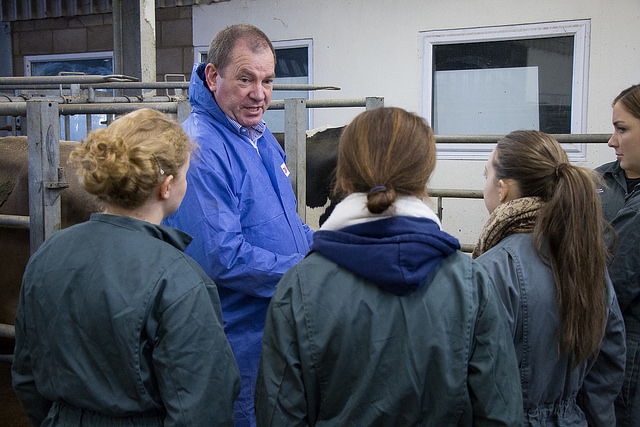By John Fishwick, British Veterinary Association President
The British poultry industry has some of the highest welfare standards in the world and I was very pleased to see Defra introduce a new welfare code of practice for laying hens in England to help upkeep and build on these standards.
When Defra launched the consultation on the new code, BVA submitted a joint response with the British Veterinary Poultry Association (BVPA) and the Veterinary Public Health Association (VPHA), outlining our feedback on the code’s ability to provide guidance to owners and keepers on how to comply with relevant farm animal welfare legislation. In our response we strongly supported the code’s recommendation for keepers to develop a farm health and welfare plan in consultation with their vet.
Vets play a pivotal role in upholding poultry welfare and we feel this is best accomplished when working closely with farmers and keepers to create, monitor and review flock health plans. Not only can these plans capture health records that benefit the individual farms and premises but they can feed into veterinary surveillance systems that involve industry, vets and government working together to benefit poultry health and welfare by building a picture of disease patterns.
As such we were delighted to see the benefits of veterinary surveillance systems highlighted in the new code, encouraging owners and keepers to use surveillance sources to better understand their local health and welfare landscape. Looking to the future we must remain vigilant to diseases such as Avian Influenza and Newcastle Disease, and robust surveillance systems can help us identify, notify and contain possible outbreaks.
We were also pleased to see the new code of practice recommend that keepers work together with vets to create bespoke action plans to reduce harmful pecking. BVA recognises the role of routine beak trimming but we advocate that, when possible, it should be avoided through the use of other strategies and interventions such as environmental enrichment.
The new code of practice is a welcome addition, helping farmers, keepers, industry and vets work together to uphold the welfare of laying hens and maintain the excellent reputation of our poultry industry both here and abroad.


